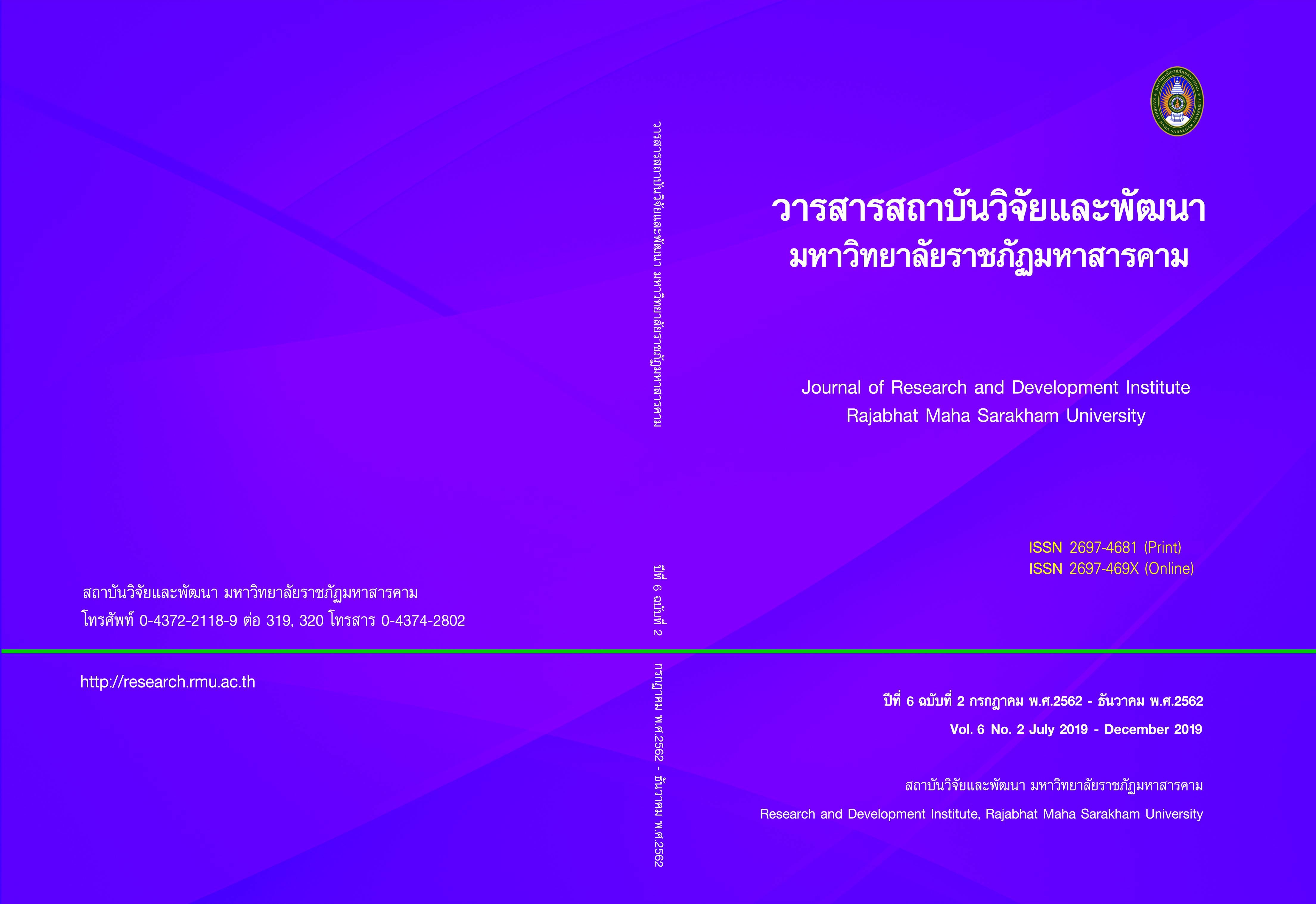Obstacles in Education Management in the Refugee Camp : the Case Study of Mea La Camp, Tak Province
Keywords:
Refugee,, Education,, Refugee camp Education ManagementAbstract
This article presents research findings about the obstacles found in education management in the Mae La Refugee Camp, Tha Song Yang District, Tak Province. The research objectives are 1) to study problems relating to education for refugee children, 2) to study different perspectives of those involved in the management of education for refugee children, including Thai officials, NGOs staffs, and refugee children and their parents, who involved in the policy-making and the operation level as well as beneficiaries of education arrangements respectively. This research is a qualitative study. Data were gathered by documentation research and interview. Interviewees are officials from Ministry of Education and Ministry of Interior, Non-governmental Organization (NGOs) staff, refugee children and their parents. The total number of interviewees is 15. The results of the study were obtained from data analysis from academic documents and extracting articles from interviews and reporting the study results by descriptive methods.
The study found that; First, the obstacles of education management in the refugee camp was the lack of cooperation between government agencies and NGOs involved in the education management. The lack of integrated work system led to the inability to verify qualification received in the refugee camp. This issue directly affected the refugee children’s quality of education and potential for further study. Second, actors involved in the education management showed incompatible views regarding the need to provide quality education for refugee children. Government officials, as the policy makers, lacked a political will to address this refugee education as an urgent matter that needs improvement. In contrast, NGOs, working in the operational level, highlighted the need to improve refugee education, especially to upgrade the curriculum and school materials, including textbooks and other teaching materials suitable for different school years. The obstacles identified in this study show that Thailand fails to uphold international human rights principles as a state member of the Convention on the Rights of the Child and fails to follow the Constitution of Thailand that requires the state to provide education to all children living in the country.
References
http://web.senate.go.th/lawdatacenter/includes/FCKeditor/upload/Image/b/reform/reform7.pdf [19 March 2018]. [In Thai].
Convention Relating to the Status of Refugees 1951. (2018). [Online].
https://www.unhcr.or.th/sites/default/files/Refugee%20Convention%201951%20(Thai).pdf. [19 March 2018]
Thailand : ZOA Refugee Care (2009). “Promoting Inclusive Education”. Annual Report 2009. [In Thai].
UNHCR Thailand. (2018A). Number of refugee camps in Thailand. [Online] https : //www.unhcr.or.th [20 October 2018]. [In Thai].
UNHCR Thailand. (2018B). Refugees in Thailand. [Online] https : //www.unhcr.or.th [20 March 2018]. [In Thai].
Downloads
Published
How to Cite
Issue
Section
License
Articles that are published are copyrighted by the authors of the articles







